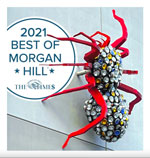The most important items on one
’s agenda are typically the most difficult.
The most important items on one’s agenda are typically the most difficult.
Because they are more complex, they do not provide the easy gratification one gets from completing simple tasks.
In fact, tackling the high priority items can mean encountering a lot of frustration, making false starts and having to start over with no apparent progress. But good time management means focusing on these difficult, priority items as much as possible.
To clarify priorities, goals and to-do items can be classified in two ways: important/not important and urgent/not urgent. Important items are usually those that relate to key mid and long-term goals. Typically they are not urgent.
Many items which come up throughout the day are urgent but not important. For example, I might need to buy Xerox paper. It’s not an important item in terms of my mid or long term goals but it is urgent because I must be able to make copies.
These urgent but non-important items are continually vying for my attention. Voicemail messages which I must respond to, invoices to be paid, small emergencies, etc. Alec MacKenzie has described this as “the tyranny of the urgent.”
Here’s a tip. On your to-do list indicate the priorities of the various items. I use the symbol ‘A’ for important items and ‘X’ or ‘XXX’ for urgent items and ‘AX’ for items which are both important and urgent.
I use a second column on my ‘to do’ list for a recap of ‘A’ and ‘X’ and ‘XXX’ items. This helps focus my attention on key items.
Books on time management like to distinguish between efficiency –doing things right – and effectiveness – doing the right things.
Of the two, effectiveness is more important because it involves priorities.
Actually, they’re both important, but the books do not always make this point. Effectiveness should be the main focus of time management, but efficiency is also a valid concern.
Successful people are not necessarily models of efficiency. One of the greatest generals in history, Ulysses Grant who became a U.S. president, complained that whenever he put a piece of paper down he was unable to locate it.
Efficiency implies organization. Many people are not willing to devote time to getting organized. They claim, “It’s not productive.” They say that too much organization interferes with creativity. But having difficulty finding papers and other items is demoralizing. It drains energy and creates negativity.
Good organization sends a powerful message to others, and to yourself, that you are in control. It produces a feeling of guilt-free euphoria and righteousness.
Getting organized is productive. It should be an important item on everyone’s agenda because organization is an ongoing process and not a one-time event. It requires continual, daily effort.
Despite what they claim, disorganized people simply do not have good organization skills. There’s nothing conceptually difficult about it.
But being disorganized is not something we like to admit about ourselves. It goes back to childhood when our mothers used to nag us about our messy rooms. Our natural reaction is to resist and tune out. In this case, however, mom was right.
In future columns, I will discuss organization skills and other time management issues.
Paul Alpert is an independent CPA/tax specialist in Morgan Hill. He is a member of the National Association of Professional Organizers (NAPO). He can be reached at 778-9477 or at www.deltaplanner.com.







